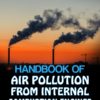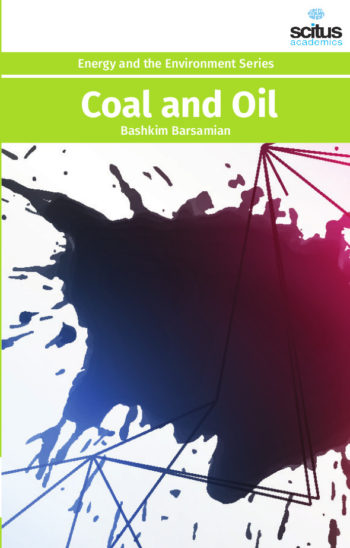Environmental engineering is the branch of engineering concerned with the application of scientific and engineering principles for protection of human populations from the effects of adverse environmental factors; protection of environments, both local and global, from potentially deleterious effects of natural and human activities; and improvement of environmental quality. The field emerged as a separate environmental discipline during the middle third of the 20th century in response to widespread public concern about water and pollution and increasingly extensive environmental quality degradation. However, its roots extend back to early efforts in public health engineering. Modern environmental engineering began in London in the mid-19th century when Joseph Bazalgette designed the first major sewerage system that reduced the incidence of waterborne diseases such as cholera. Furthermore, it is concerned with finding plausible solutions in the field of public health, such as waterborne diseases, implementing laws which promote adequate sanitation in urban, rural and recreational areas.
This book ‘Environmental Engineering’ presents the coverage of waste water management, air pollution control, recycling, waste disposal, radiation protection, industrial hygiene, animal agriculture, environmental sustainability, public health and environmental engineering law. It also includes studies on the environmental impact of proposed construction projects. Environmental engineers use the principles of engineering, soil science, biology, and chemistry to develop solutions to environmental problems. They are involved in efforts to improve recycling, waste disposal, public health, and water and air pollution control. Teachers and students of environmental health and the environmental sciences, as well as of civil, chemical, mechanical, environmental, sanitary, municipal, and public health engineering, will find much of direct and general value in this text. Others too will find the contents especially useful. These would include the health officer, professional sanitarian, environmental scientist, social scientist, ecologist, biologist, conservationist, public health nurse, health educator, environmental health technician, and sanitary inspectors.














eby8d –
where buy cheap clomiphene price where to buy generic clomid tablets can i get generic clomid for sale clomiphene prices can you buy cheap clomiphene pills cost of generic clomid without insurance buy cheap clomid pill
online cialis pharmacy –
The reconditeness in this tune is exceptional.
ancef and flagyl –
I’ll certainly return to read more.
k2f2z –
zithromax without prescription – order tinidazole 300mg online order flagyl 200mg online
kawbk –
buy cheap generic rybelsus – cyproheptadine 4mg pill cyproheptadine without prescription
9slrd –
oral domperidone – cyclobenzaprine online buy flexeril 15mg ca
eyrw5 –
order inderal 20mg for sale – order clopidogrel 150mg online cheap methotrexate 5mg sale
kgmb8 –
purchase amoxicillin sale – diovan 160mg for sale combivent canada
hgtz7 –
purchase azithromycin generic – bystolic 20mg over the counter bystolic 20mg usa
ul9qa –
buy amoxiclav – https://atbioinfo.com/ purchase ampicillin online
mfel7 –
esomeprazole 20mg brand – anexa mate buy nexium generic
ulayk –
buy coumadin no prescription – coumamide order losartan 50mg for sale
m7qmu –
order meloxicam online cheap – https://moboxsin.com/ order meloxicam 15mg without prescription
vmhk6 –
prednisone 10mg cheap – corticosteroid deltasone 20mg sale
q610d –
best ed pill – fast ed to take site buy ed pill
9ql2s –
buy amoxicillin pills for sale – comba moxi amoxicillin price
78gsr –
diflucan oral – on this site purchase forcan pills
pft6x –
buy cenforce sale – https://cenforcers.com/# order cenforce 50mg pill
6gbyz –
cialis over the counter usa – canadian cialis 5mg buy cialis online without prescription
rvgb5 –
tadalafil pulmonary hypertension – strongtadafl tadalafil without a doctor’s prescription
ConnieTed –
order generic ranitidine 150mg – https://aranitidine.com/# ranitidine 300mg for sale
d1q8m –
how to order viagra in india – buy cheap viagra mastercard buy generic viagra online overnight
gq22d –
The depth in this serving is exceptional. neurontin 800mg without prescription
ConnieTed –
More delight pieces like this would make the web better. amoxil para que sirve
ConnieTed –
More posts like this would make the blogosphere more useful. https://ursxdol.com/augmentin-amoxiclav-pill/
juf8d –
More content pieces like this would make the интернет better. https://prohnrg.com/product/atenolol-50-mg-online/
ipho7 –
I couldn’t resist commenting. Profoundly written! https://aranitidine.com/fr/viagra-100mg-prix/
ConnieTed –
I couldn’t weather commenting. Well written! https://ondactone.com/product/domperidone/
ConnieTed –
Proof blog you procure here.. It’s hard to assign strong status article like yours these days. I really comprehend individuals like you! Go through care!!
https://doxycyclinege.com/pro/sumatriptan/
ConnieTed –
I am in fact enchant‚e ‘ to glance at this blog posts which consists of tons of worthwhile facts, thanks for providing such data. http://www.dbgjjs.com/home.php?mod=space&uid=531990
ConnieTed –
order forxiga 10mg generic – this purchase dapagliflozin sale
ConnieTed –
order xenical pill – https://asacostat.com/# order orlistat 60mg pill